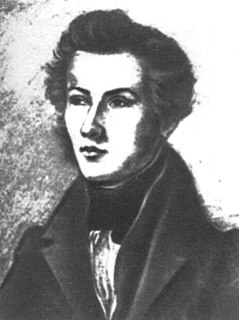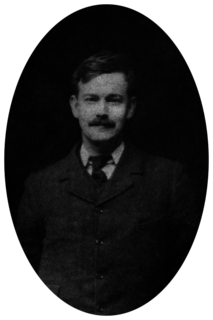A Quote by Charles Baudelaire
...an industry which can furnish results identical to nature must be the absolute in art.
Related Quotes
For us, mind has nature for its premise, being nature's truth and for that reason its absolute prius. In this truth nature has vanished, and mind has resulted as the idea arrived at being-for-itself, the object of which, as well as the subject, is the concept. This identity is absolute negativity, for whereas in nature the concept has its perfect external objectivity, this its alienation has been superseded, and in this alienation the concept has become identical with itself. But it is this identity therefore, only in being a return out of nature.
The pure Christian State is a State in which theological law prevails. This law attains to real power or, to be more exact, absolute power, when through its results which are identical with those of opium, it puts all parts of humanity to sleep. If some occasionally awake they carry out crimes that horrify humanity which has not yet become Christian in the full sense of the word or has already abandoned the Christian framework.
If there is no absolute moral standard, then one cannot say in a final sense that anything is right or wrong. By absolute we mean that which always applies, that which provides a final or ultimate standard. There must be an absolute if there are to be morals, and there must be an absolute if there are to be real values. If there is no absolute beyond man's ideas, then there is no final appeal to judge between individuals and groups whose moral judgments conflict. We are merely left with conflicting opinions.
Man must have results, real results, in his inner and outer life. I do not mean the results which modern people strive after in their attempts at self-development. These are not results, but only rearrangements of psychic material, a process the Buddhists call 'samsara' and which our Holy Bible calls 'dust'.
I know now that he who hopes to be universal in his art must plant in his own soil. Great art is like a tree, which grows in a particular place and has a trunk, leaves, blossoms, boughs, fruit, and roots of its own. The more native art is, the more it belongs to the entire world, because taste is rooted in nature. When art is true, it is one with nature. This is the secret of primitive art and also of the art of the mastersMichelangelo, Czanne, Seurat, and Renoir. The secret of my best work is that it is Mexican.
Again, if the world is destroyed, it must needs either be destroyed according to nature or against nature. Against nature is impossible, for that which is against nature is not stronger than nature. If according to nature, there must be another nature which changes the nature of the world: which does not appear.
Many people seem to think that art is a luxury to be imported and tacked on to life. Art springs out of the very stuff that life is made of. Most of our young authors start to write a story and make a few observations from nature to add local color. The results are invariably false and hollow. Art must spring out of the fullness and richness of life.
To the labor of man alone Smith ascribes the power of producing values. This is an error. A more exact analysis demonstrates... that all the values are derived from the operation of labor, or rather from the industry of man, combined with the operation of those agents which nature and capital furnish him.
It is a thoughtless and immodest presumption to learn anything about art from philosophy. Some do begin as if they hoped to learnsomething new here, since philosophy cannot and should not do anything further than develop the given art experiences and the existing art concepts into a science, improve the views of art, and promote them with the help of a thoroughly scholarly art history, and produce that logical mood about these subjects too which unites absolute liberalism with absolute rigor.
It is a great mortification to the vanity of man, that his utmost art and industry can never equal the meanest of nature's productions, either for beauty or value. Art is only the under-workman, and is employed to give a few strokes of embellishment to those pieces, which come from the hand of the master.
The laws of Nature, that is to say the laws of God, plainly made every human being a law unto himself, we must steadfastly refuse to obey those laws, and we must as steadfastly stand by the conventions which ignore them, since the statutes furnish us peace, fairly good government, and stability, and therefore are better for us than the laws of God, which would soon plunge us into confusion and disorder and anarchy if we should adopt them.







































